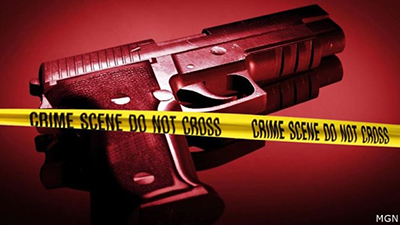
(Source MSR Minnesota Spokesman – Records):
African American youth suffer the most from gun violence
Sierra Jenkins, a former news assistant for CNN and reporter with the Virginian Pilot newspaper, was headed for the peak of her career. Her colleagues praised her for her journalistic acumen and her respect for reporting excellence.
But when her editor tried to call her to assign her to cover a shooting in downtown Norfolk, Virginia, last year, he could not get an answer. Out of character for this young journalist, known for her professionalism and accountability, there would be a reason for her non-response that would shock the world. Sierra Jenkins, 25, was one of the victims of the very March 19 shooting that her editor sought her to cover.
As her phone rang, she lay dead outside a popular pizza restaurant, felled by a bullet shot during an argument over a spilled drink. She was not involved in the dispute and the bullet was never intended for her. Nor was it intended for 25-year-old former high school honor student and football linebacker Devon Harris, also killed in the gunfire that night. The news devastated the community, their co-workers, family and friends.
Fifteen months later, on June 6, 2023, only about 90 miles away, 18-year-old Shawn Jackson was also a promising young African American. Having just graduated from Huguenot High School 30 minutes earlier, he lay dead outside Richmond’s Altria Theatre alongside his stepfather, Renzo Smith, a U. S. Army veteran. Both were killed by bullets from a gun wielded by a 19-year-old man who targeted the two, according to police.
Whether the shootings were unintended or criminally intended for their victims, across the nation—coast-to-coast—Black people are disproportionately dying, being wounded by, or mentally suffering from gun violence. According to the Centers for Disease Control and Prevention, the leading cause of death among Black children and young adults ages 1-44 is homicide by firearms.
In the midst of this crisis, sociologists, Black mental health experts and medical workers say one thing is certain: The travesty has taken its toll on Black mental health—largely through fear, stress and grief—while the gun industry is reaping billions of dollars.
“The volumes of guns are now so high that many people just use a gun to solve conflict when even that person might have tried something different in the past,” says psychiatrist Rahn Kennedy Bailey, chairman of the Department of Psychiatry at Louisiana State University in New Orleans.
“Our streets have been flooded with guns, a lot of guns. Where people have always had conflicts and had to resolve it in different ways, now they might grab you and shoot you… The sheer volume of guns are so high, a lot more violence happens.”
According to a report by the Center for American Progress, between 1986 and 2008 an average of 3.8 million firearms were manufactured in the United States. The report, entitled “The Gun Industry in America: The Overlooked Player in a National Crisis,” illustrates the rapid growth annually of gun proliferation throughout the country. The 3.8 million guns between 1986 and 2008 “doubled to an annual average of 8.4 million firearms per year from 2009 to 2018,” the most accurate recent count by the Bureau of Alcohol, Tobacco, Firearms and Explosives (ATF).
In the year 2022 alone, 4.2 million people in America became new gun owners, according to the National Shooting Sports Foundation (NSSF), the firearm industry’s trade association. In a report, the NSSF estimates “in 2022 the firearm and ammunition industry was responsible for as much as $80.73 billion in total economic activity” in America. This does not count the thousands of so-called “ghost guns,” weapons not traceable because they are purchased secretly online or even made at home.
The compilations of resulting deaths have come from multiple directions. An NBC News analysis of data from the U.S. Centers for Disease Control and Prevention says, “More Americans have died from gunshots in the last 50 years” than in all of the wars in American history. “Since 1968, more than 1.5 million Americans have died in gun-related incidents. By comparison, approximately 1.2 million service members have been killed in every war in U.S. history, according to estimates from the Department of Veterans Affairs and iCasualties.org.”
Everytown.org, a gun violence prevention organization, reports that Black people “experience 12 times the gun homicides, 18 times the gun assault injuries, and nearly 3 times the fatal shootings by police of White Americans.”
But the disparate impact on the Black community is not new. Experts have long known that African Americans—just as in the cases of most other tragic social statistics—bear the brunt of the pain of gun violence physically, mentally and emotionally. There is even evidence indicating that gun violence dramatically affects educational outcomes such as test scores.
A study led 20 years ago by Hampton University Professor Zina T. Mcgee concluded that “Studies based on children raised in communities in which violence occurs have shown that direct encounters with violence (either as a victim or witness) increase the likelihood of experiencing anxieties, depression, social withdrawal, and difficulties in concentrating.”
Based on information collected from African American youth “residing in areas plagued with violence and crime,” Mcgee’s 2003 study states, “socioeconomic status serves as one of the many environmental factors that can contribute to the use of violence to resolve conflicts.”
Despite credible conclusions that most gun-related homicides occur in low-income Black communities, it is clear that without the proliferation of guns the shootings would not be possible.
Hazel Trice Edney, president and CEO of Trice Edney Communications, and former editor-in-chief of the NNPA News Service.


Be the first to comment